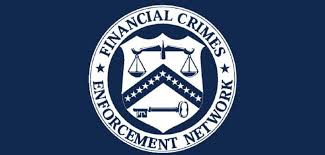FinCEN Issues Proposed Beneficial Ownership Reporting Regulations

The Anti-Money Laundering Act of 2020 was a game-changing piece of legislation. Perhaps the most important provision is the expansion of beneficial ownership regulatory authority. Following up on this important issue, the Treasury Department’s Financial Crimes Enforcement Network (FinCEN) issued its Notice of Proposed Rulemaking to implement new beneficial ownership reporting requirements.
In the international sphere of AML compliance and enforcement, the United States has lagged behind on beneficial ownership regulation. As a result, the United States became a haven for money laundering. The government, industry and law enforcement came together to address a number of AML issues, and most significantly, beneficial ownership regulations. In the past, the industry resisted beneficial ownership regulations because of the cost of such requirements. But the industry saw the handwriting on the wall and decided to embrace this change rather than continuing to resist this regulation.
FinCEN initially addressed this issue several years ago when it enacted Customer Due Diligence Rules. The new set of regulations focuses on disclosure requirements and is specifically targeted at shell companies. Further, the new law and regulations establish the requirements for reporting and maintenance of a beneficial ownership data base for law enforcement and regulatory purposes.
The new Proposed Rules are the first of three rulemakings required by FinCEN to implement the Corporate Transparency Act, which was enacted as part of the overall The Anti-Money Laundering Act of 2020. The CTA required FinCEN to implement regulations by the end of 2021 to create a beneficial ownership registry for U.S. and foreign entities operating in the United States. In April 2021, FinCEN issued an Advanced Notice of Proposed Rulemaking requesting comments on a number of issues. The Proposed Rules provide specific regulations on reporting requirements for beneficial ownership information. After this proposal, FinCEN plans to implement regulations governing access to and disclosure of the beneficial ownership information and to revise the existing CDD Rules.

Under the Proposed Rule, a covered or “reporting” company has to provide FinCEN beneficial ownership information for all of its owners.
A “reporting company” is defined as any entity that is created in any state or outside the United States but is registered to conduct business in any state. While the definition is broad, the proposed rule includes 23 exemptions some of which are very broad. One significant exemption is any issuer, bank, insurance company and large operating companies that employ more than 20 full-time employees, have a physical office in the U.S., and have filed federal tax returns confirming gross receipts of more than $5 million. The clear import of the Proposed Rules is to target “shell companies” used to facilitate money laundering activities.
The Proposed Rules require identifying information about all beneficial owners and the “company applicant,” defined as the individual who files the document request for authority to conduct business in the United States. The required information includes name, date of birth, address and a scanned copy of an identification document. A “beneficial owner” is defined as individuals who exercise substantial control over the company or own at least 25 percent of the company.
The definition of equity ownership of a company is broad and includes those who directly or indirectly own or control at least 25 percent of the ownership interests. The concept of ownership is not restricted to equity but includes profit interests such as partnership interests, options to acquire equity or profits or other equitable interests. FinCEN specifically directs companies to review all the facts and circumstances when analyzing who might own or control ownership interests. FinCEN’s objective is to “thwart the use of complex ownership structures and ownership vehicles other than direct equity ownership to obscure a reporting company’s real owners.” With respect to trusts, FinCEN adopts a similar “fact-based” approach.
The term “substantial control” is broadly defined to include all individuals within one entity who may exercise such control, and extends to senior officers, those with authority to appoint or remove senior officers, and those who can direct, determine or decide or exercise substantial influence over important matters affecting the company. Given this broad definition, company filings are likely to be overly-inclusive to ensure compliance with these requirements.

Recognizing the wide scope of the definition, FinCEN excluded those individuals who are responsible for the ordinary execution of day-to-day managerial decisions.
Companies will have one year after the date of implementation to submit initial beneficial ownership reports to FinCEN. After the effective date and initial report, companies must update information within 30 days of any changes in required information.
Any person who willfully provides or attempts to provide false or fraudulent beneficial information, or willfully fails to report complete or updated information can be incarcerated for up to 2 years and pay a civil fine of up to $500 for each day the violation continues.
















1 Response
[…] Source link […]